Navigating the sensitive topic of employee termination can be challenging, but a well-crafted warning notice can help mitigate risks and maintain professionalism. In this article, we'll explore essential elements for creating an effective termination warning notice that not only communicates your message clearly but also adheres to legal standards. We aim to provide insights that empower employers to handle difficult conversations with care and consideration. So, let's dive deeper into this important subject and discover best practices for your workplace communications!
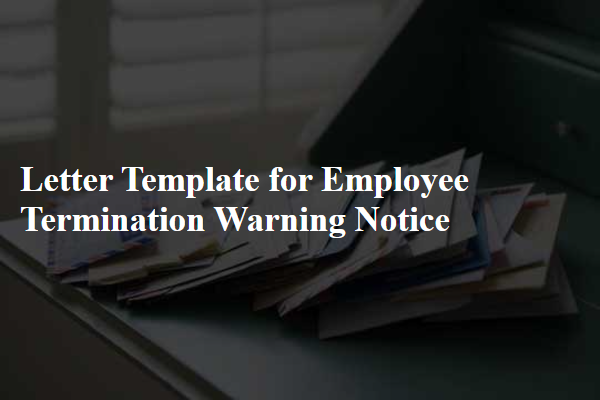
Employee Information
Employee termination warning notices serve as formal communication regarding unsatisfactory job performance or behavior. The document typically includes important employee information such as name, employee identification number, department (e.g., Sales, Human Resources), position title (e.g., Sales Associate, HR Manager), and the date of the notice. Specific incidents or behaviors leading to the warning must be outlined, including relevant dates and consequences (such as potential termination). Company policies violated are referenced, and the employee is informed of their right to respond or discuss the matter, ensuring a transparent process. A follow-up meeting date may also be included to address concerns and outline improvement expectations.
Reason for Warning
Employee termination warning notices serve to formally address performance or behavioral issues within the workplace environment. Common reasons for these warnings may include consistent tardiness (arriving late more than three times in a month), failure to meet deadlines (missing at least two critical project deadlines), or violation of company policies (such as inappropriate conduct according to the employee handbook). It's important to document significant incidents (date, time, and nature of the incident) to provide clear evidence of repeated infractions. This process encourages improvement while outlining potential consequences (termination) if behaviors do not change within a specified timeframe.
Detailed Incident Description
Employee termination warnings can stem from various incidents of misconduct or underperformance in the workplace. A detailed incident description is crucial to documenting the event appropriately. For instance, an employee at a manufacturing plant may repeatedly fail safety protocols, resulting in safety violations. On November 5, 2023, this employee was observed bypassing safety switches on machinery, a gross violation of the Occupational Safety and Health Administration (OSHA) regulations that aim to protect workers' safety. This incident not only endangers the individual but also poses significant risks to coworkers. Previous warnings about improper equipment handling, recorded on October 10 and October 20, 2023, were issued but went unheeded. Continuous disregard for safety procedures can lead to serious consequences, including potential injury and legal ramifications for the company. This pattern of behavior diminishes team morale and disrupts the operational efficiency essential for maintaining a safe working environment.
Company Policies Violated
Employee termination warning notices serve as critical documents in the human resources process, outlining violations of company policies. These notices are often linked to specific infractions such as attendance issues, harassment incidents, or breaches of confidentiality codes. The notice typically includes the employee's name, position, and relevant dates, as well as a clear description of the violation. For example, failure to adhere to attendance policies as illustrated by multiple unexcused absences documented over the past three months. The notice serves to inform the employee of the potential consequences, including possible termination, if the behavior is not corrected. It may also reference company policies directly from the employee handbook, highlighting the importance of adherence to organizational standards set forth by the company, typically located in section 4.2 of the handbook.
Consequences and Expectations
Employee termination warning notices play a critical role in maintaining workplace standards. These documents detail the consequences of poor performance or misconduct, emphasizing the importance of company policies. The notice typically outlines specific expectations for improvement, such as meeting productivity benchmarks or adhering to conduct guidelines. For instance, an employee failing to meet monthly sales targets (e.g., a 20% drop compared to previous quarters) may receive a notice emphasizing the need for a 15% increase in future sales. Additionally, the notice serves to provide a clear timeline, often spanning 30 days, by which the employee must demonstrate improvement to avoid termination. Overall, this structured approach aims to foster accountability and facilitate positive changes within the organization.

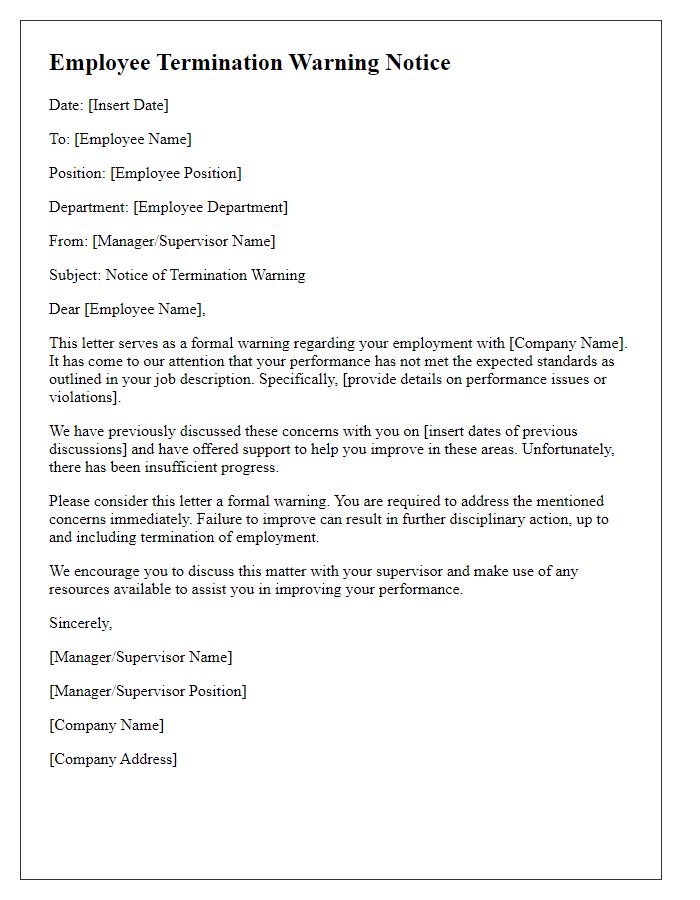
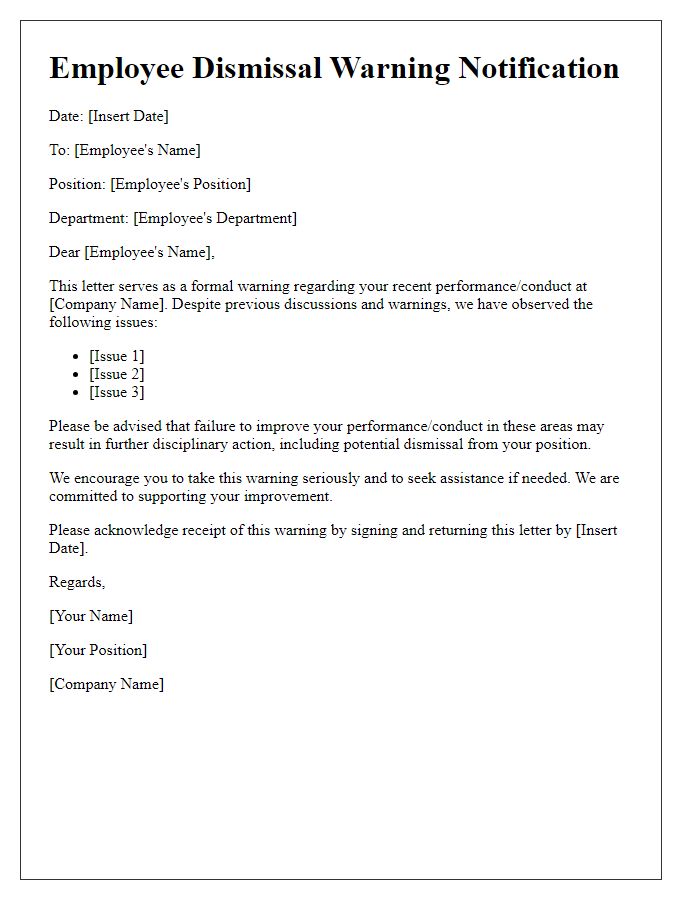
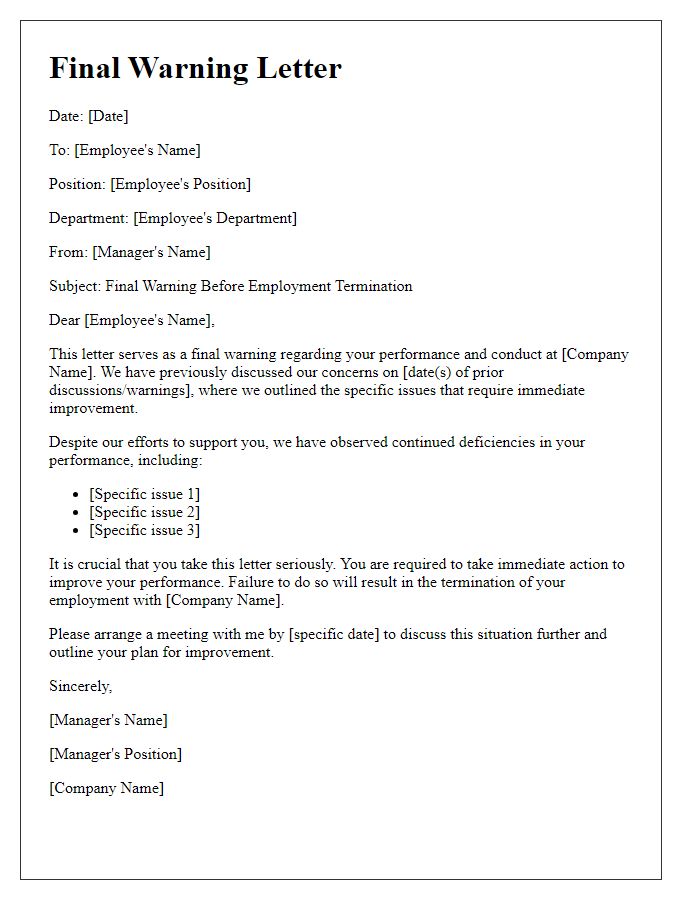
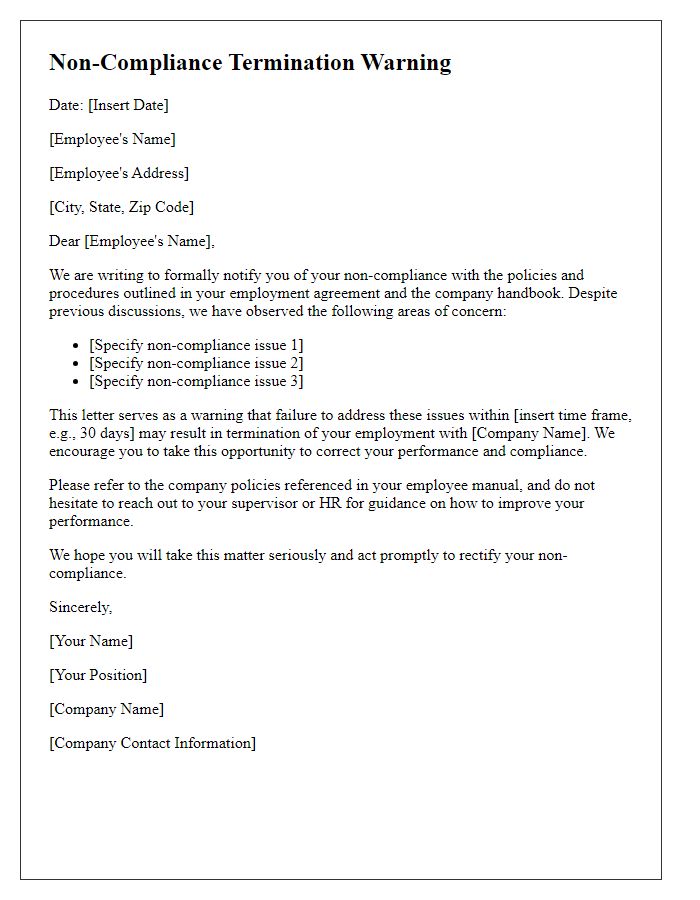
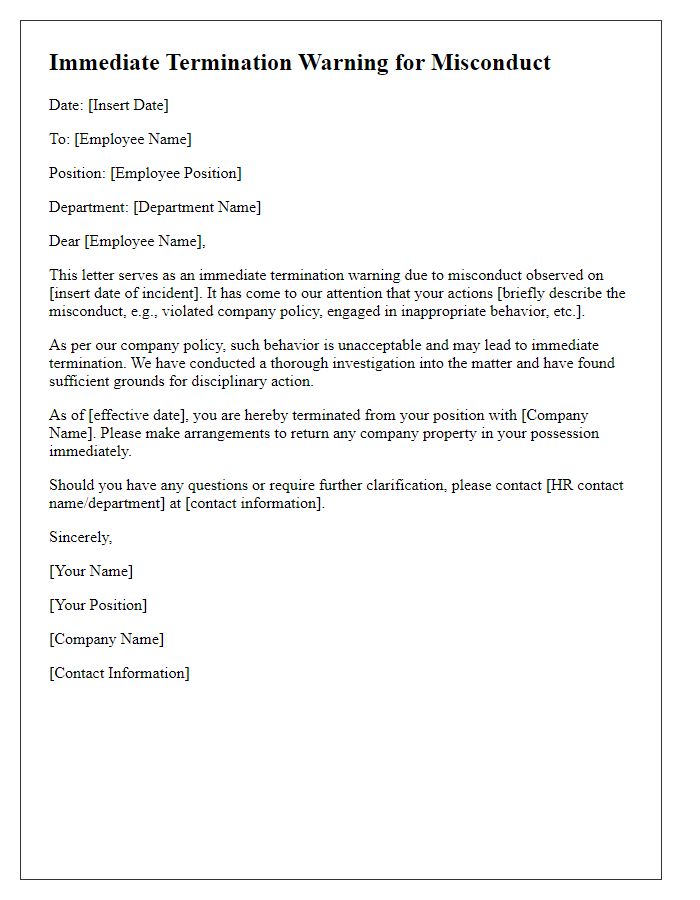
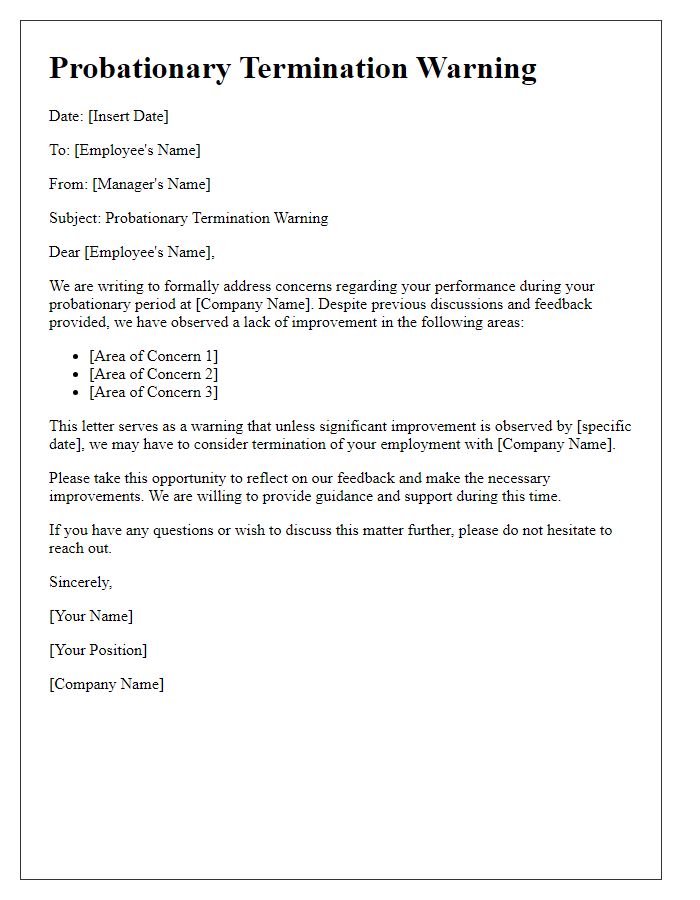
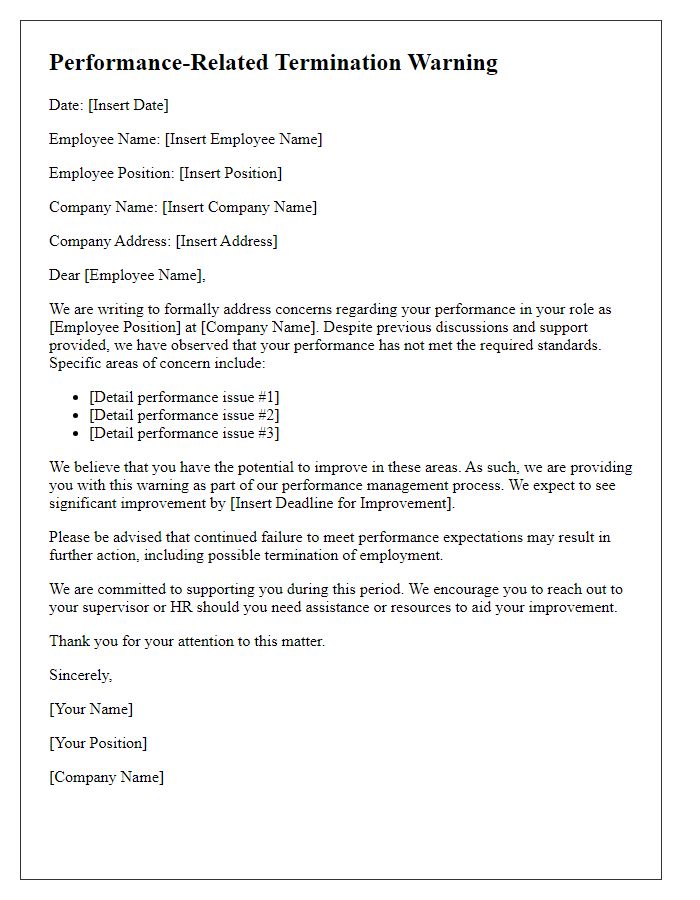
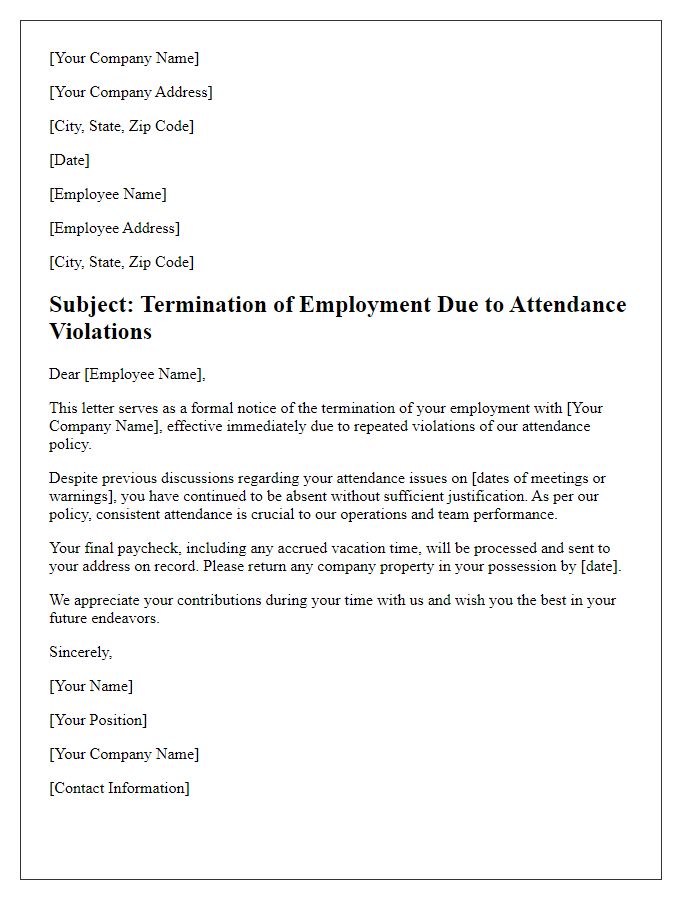
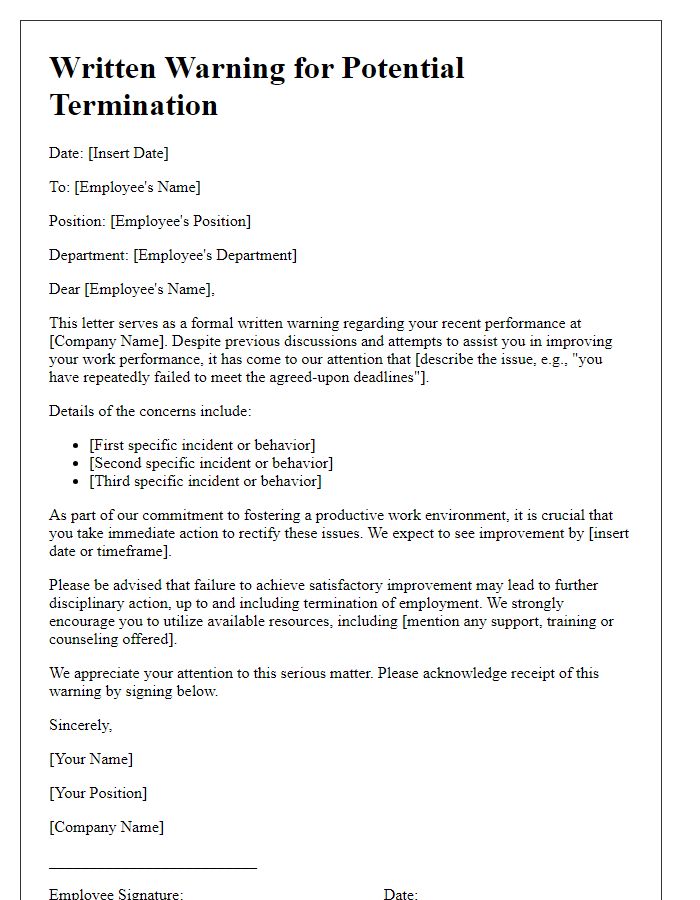
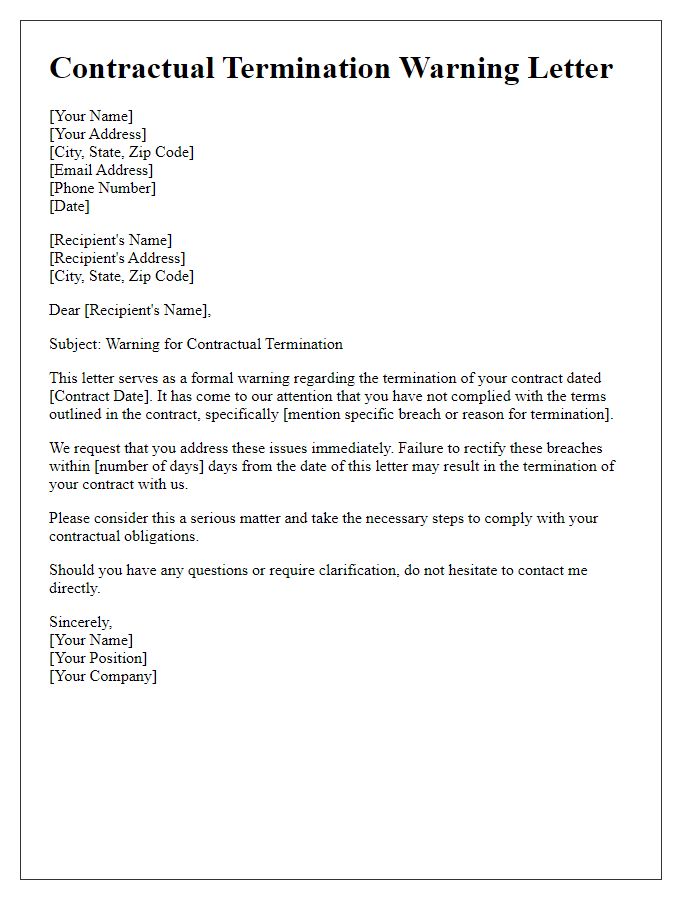


Comments